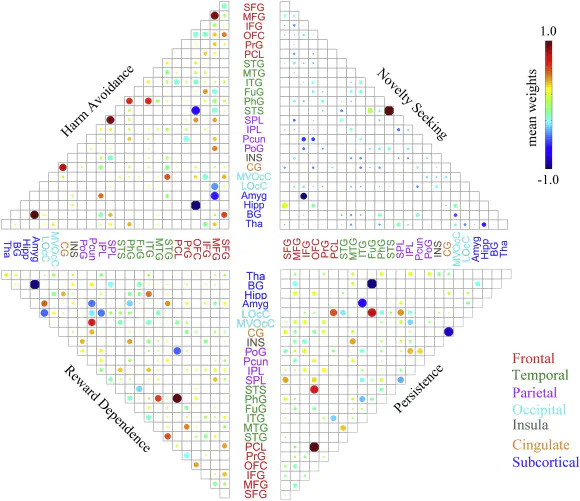 Mean weights distribution of whole-brain FCs for temperament trait
Mean weights distribution of whole-brain FCs for temperament traitAbstract
Temperament consists of multi-dimensional traits that affect various domains of human life. Evidence has shown functional connectome-based predictive models are powerful predictors of cognitive abilities. Putatively, individuals’ innate temperament traits may be predictable by unique patterns of brain functional connectivity (FC) as well. However, quantitative prediction for multiple temperament traits at the individual level has not yet been studied. Therefore, we were motivated to realize the individualized prediction of four temperament traits (novelty seeking [NS], harm avoidance [HA], reward dependence [RD] and persistence [PS]) using whole-brain FC. Specifically, a multivariate prediction framework integrating feature selection and sparse regression was applied to resting-state fMRI data from 360 college students, resulting in 4 connectome-based predictive models that enabled prediction of temperament scores for unseen subjects in cross-validation. More importantly, predictive models for HA and NS could be successfully generalized to two relevant personality traits for unseen individuals, i.e., neuroticism and extraversion, in an independent dataset. In four temperament trait predictions, brain connectivities that show top contributing power commonly concentrated on the hippocampus, prefrontal cortex, basal ganglia, amygdala, and cingulate gyrus. Finally, across independent datasets and multiple traits, we show person’s temperament traits can be reliably predicted using functional connectivity strength within frontal-subcortical circuits, indicating that human social and behavioral performance can be characterized by specific brain connectivity profile.